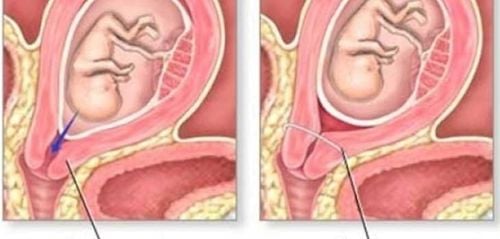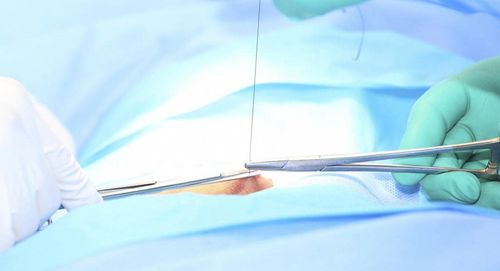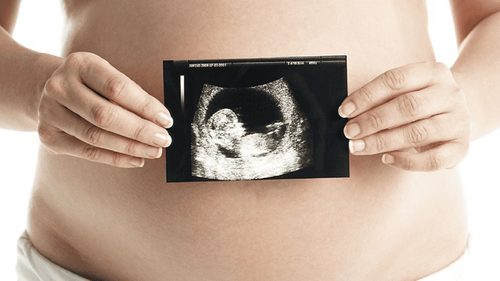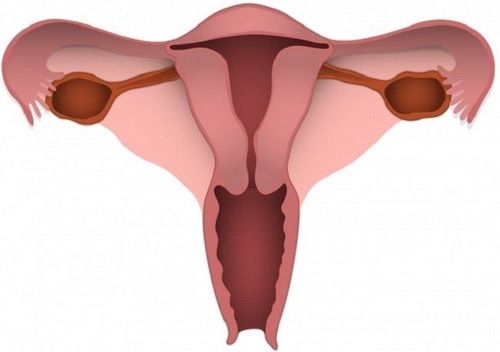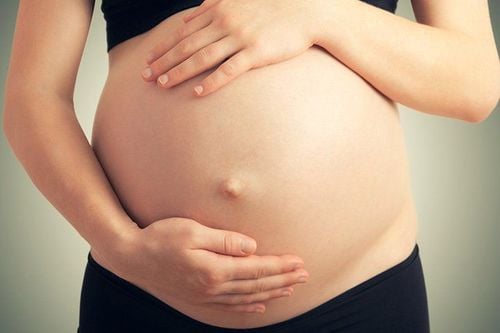This is an automatically translated article.
Waist stitching is a procedure that uses medical sutures to tighten the waist of the uterus. This procedure is used in pregnant women who have been diagnosed with a cleft palate, which is the cause of repeated miscarriages in the second trimester of pregnancy. So what are the risks of cervical stitches that mothers may encounter?
1. What is the suture of the uterus?
Waist stitching is a procedure that uses medical sutures to tighten the isthmus to strengthen the cervix and prevent the cervix from dilating too soon. For women who have had a miscarriage and suspected cleft palate, this procedure helps prolong the current pregnancy and allows the baby to be fully nourished in the womb for up to 37 weeks.
The isthmus is applied in mothers who have been diagnosed with ectopic pregnancy and is divided into the following 3 situations:
Women who have had a miscarriage or preterm birth in the second trimester of pregnancy without or only There are few warning signs such as abdominal pain, bleeding, vaginal discharge changes, etc. This condition occurs in 2 consecutive pregnancies, miscarriages occur before 24 weeks of pregnancy. Women with a history of miscarriage in the second trimester will be screened to measure the height of the uterus in the next pregnancy or through an ultrasound device. Ultrasound results show that the length of the cervix is less than 25mm before 24 weeks of gestation. The doctor noticed that there was an opening of the waist of the uterus such as the cervix dilating, dilating, forming the beginning of the amniotic sac, ... during pregnancy examination in the second trimester. Should a twin pregnancy have a cervical stitch? Twin pregnancy does not necessarily require cervical stitches. However, if a pregnant woman encounters one of the above conditions, she needs to go to a medical facility to be examined and evaluated for the possibility of needing cervical stitches or not.
2. The risks when suturing the cervical spine
Cervical suture usually has very few complications, the recorded cases affect only 6% of cases. However, the risk frequency will be higher when the gestational age is large and there are signs of cervical dilation before suturing. The risks of cervical suture include:
Amniotic membrane rupture: the frequency of membranes ruptures early after the suture with about 2% Amniotic infection or infection of the amniotic membrane Cervical tearing Sewing in the wrong place Sewing thread in the wrong place Cervical or cervical trauma during labor is reported to occur in less than 5% of cases of isthmus stitches.
3. Care after cervical suture
After cervical suture, to prevent possible complications, pregnant women need to be monitored for uterine contractions, abdominal pain and bleeding or vaginal discharge. Bleeding is one of the possible complications of cervical cerclage. Therefore, the procedure should be performed by a doctor with high expertise and experience, besides, after the procedure, if bleeding occurs, immediately notify the medical staff.
Can I walk around with cervical stitches? After suturing the cervix, mothers need to continue to take care of the fetus and rest in bed for at least 24 hours. Pregnant women need to be monitored after the procedure at the hospital for about 1-2 days, and at the same time, use tocolytic drugs until the 36th week of pregnancy. In the following days, you need to exercise gently, do not walk much, do not carry heavy loads. And absolutely no sex. Besides, a suitable diet, use of prophylactic antibiotics and periodic ultrasound measurement of cervical length are extremely necessary.
In summary, the suture is a procedure to tighten the waist of the uterus to help keep the cervix strong and prevent the cervix from dilating too soon, helping the pregnancy to be kept longer, creating favorable conditions for the baby. The baby is fully nourished in the womb for up to 37 weeks or more. However, the process of performing cervical suture may face some risks such as rupture of membranes, infection, cervical tear, etc. Therefore, after the procedure, pregnant women need to be complete rest and exceptional monitoring. When there are abnormal symptoms such as vaginal bleeding, discharge, etc., it is necessary to immediately notify the medical staff for timely treatment.
To protect mother and baby's health comprehensively, Vinmec International General Hospital now has a package maternity service, with a team of highly qualified doctors, ultrasound machine system, and medical equipment. Modern equipment will promptly recognize abnormalities during pregnancy, help monitor the health of mother and baby right from the beginning of pregnancy, early detect and timely intervene health problems.
In addition, at Vinmec, we also perform intensively Double Test or Triple Test tests to screen for fetal malformations; Quantitative angiogenesis factor test to diagnose preeclampsia; thyroid screening test; Rubella test; testing for parasites that are transmitted from mother to child, which seriously affects the baby's brain and physical development after birth...
After birth, the baby will be cared for in a sterile room before being brought back back to mom. Pregnant women will rest in a high-class hospital room, designed according to international hotel standards, 1 mother and 1 room with full facilities and modern equipment. Mothers will be consulted by nutritionists on how to feed the baby before leaving the hospital. Postpartum follow-up with both mother and baby with leading Obstetricians and Pediatricians.
Please dial HOTLINE for more information or register for an appointment HERE. Download MyVinmec app to make appointments faster and to manage your bookings easily.




